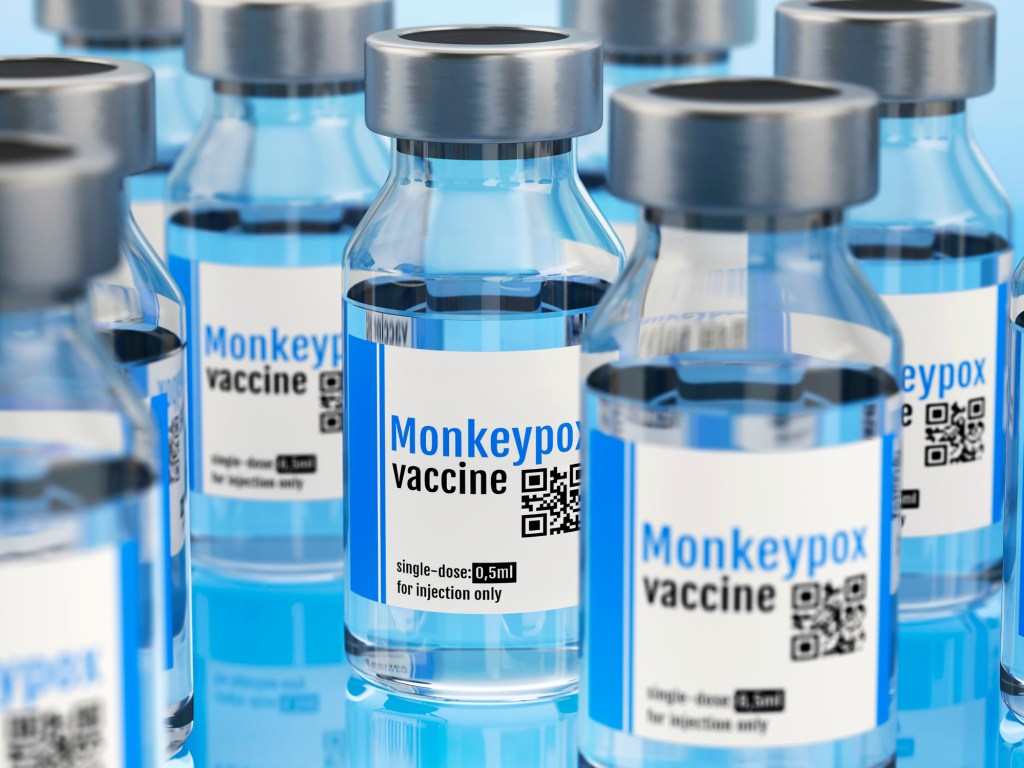Here’s how to protect yourself and stay safe from mpox this summer

How to protect yourself from mpox this summer. (Getty/PinkNews)
How to protect yourself from mpox this summer. (Getty/PinkNews)
As mpox cases start to rise again in some key areas, experts are urging queer people to remain vigilant and get vaccinated.
Mpox cases are down significantly since the epidemic reached its peak in the summer of 2022. The shift prompted the World Health Organisation (WHO) to declare that the outbreak was no longer a public health emergency on 11 May – but that doesn’t mean the virus has disappeared.
The WHO is now warning that mpox cases could rise again during the summer months as queer people congregate for Pride festivals and other gatherings.
“[Mpox] still is circulating, it still is with us, and still does represent an ongoing risk,” Dr Richard Pebody, mpox lead with the WHO, tells PinkNews.
“It’s much lower levels of cases now than what we were seeing before, but we also know – and this is the key message I really want to get out to folk – is that there is still the potential for flare-ups, for further outbreaks, this spring and summer.”
He continues: “We’ve seen recently a flare-up in France for example. We’ve also seen a flare-up just recently in the States, in Chicago. These have again really been occurring primarily in the GBMSM (gay, bisexual and men who have sex with men) community and many of the cases had a vaccine last year as well, so it is highlighting the ability of the virus to still circulate and to cause illness.”

That’s why the WHO is now launching a new campaign to remind the public that mpox is still circulating as the summer season begins.
“We know festivals where people get together there is an increase in sexual contact. There is the potential for further clusters and outbreaks in those types of settings,” Dr Pebody says.
“It’s really about putting this out there and raising people’s awareness that, on the one hand, we [should] celebrate where we are now, but also to highlight what we can do to keep ourselves and those around us safe.”
WHO urges people to get tested if they develop mpox symptoms
Dr Pebody says there are a range of things people can do to protect themselves and others from mpox this summer.
“On the one hand, if you suspect that you’ve got mpox yourself – so if you’ve started to develop a rash which is consistent with mpox – then get yourself checked out.
“Give the festival or the event a miss. Avoid close contact with others and that will certainly reduce your risk of then spreading that on to others – that’s a really important thing.”
People can also reduce their risk of contracting mpox by taking a smallpox vaccine if one is available in their country. Vaccines reduce both the risk of infection and the risk of severe illness.
The WHO wants people to stay safe this summer, but they also want to reassure queer people that they can still have fun while socialising or having sex with new partners.
“I would really try to reassure people not to be frightened,” Dr Pebody says.
“Certainly now in Europe, the incidence of mpox is much, much lower than it was last year. We’re in a much better position so we certainly don’t want to frighten people. What we want to do really is to remind people that mpox is still potentially out there, but there are things we can all do to reduce that risk of potentially being exposed.
“If you’re planning to go to a festival, to an event, do go – have fun, have a good time, but just remember what you can also do to protect yourself and others.”

